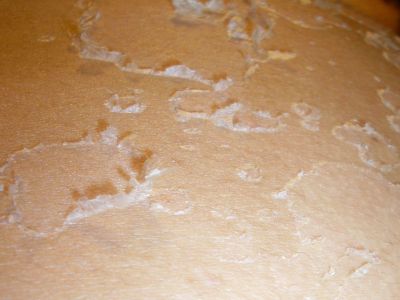Mold Allergy

Mold allergy commonly causes coughing, itchy eyes, and other unpleasant symptoms. Those with mold allergies experience an overreaction when they breathe in mold spores. In people who suffer from mold allergies, exposure can cause restricted breathing and other symptoms related to airway obstruction.
The best way to protect yourself from mold allergies is to reduce your exposure to the types of mold that trigger your reaction. Mold allergy medications can help control your symptoms.
Causes of Mold Allergy
The immune system responds to mold allergies in the same manner as it responds to other allergies. Mold spores inhaled through the air cause your body to produce allergy-causing antibodies to combat them. Exposure to mold spores can cause a reaction right away, or the reaction can be delayed.
Some molds are common indoors and outdoors. Only certain kinds of mold cause allergies. Being allergic to one type of mold doesn’t mean you’ll be allergic to another. Some of the most common molds that cause allergies include Aspergillus, Alternaria, Cladosporium, and Penicillium.

Symptoms of Mold Allergy
A mold allergy causes the same symptoms that occur in other types of upper respiratory allergies. The symptoms of this type of allergy may include:
- Dry, scaly skin
- Watery eyes
- Itchy throat, nose, and eyes
- Cough and postnasal drip
- Runny or stuffy nose
- Sneezing
Mold allergy symptoms vary from person to person and range from mild to severe.
If you have a sneezing, stuffy nose, shortness of breath, watery eyes, wheezing or other bothersome symptoms that persist, see your doctor.
Risk Factors of Mold Allergy
- Working in an occupation that exposes you to mold. Occupations where mold exposure can be high.
- Having a family history of allergies. If allergies and asthma run in your family, you’re more likely to develop a mold allergy.
- Living in a house with high humidity. Having indoor humidity higher than 50% can increase mold in your home.
- Working or living in a building that’s been exposed to excess moisture. At some point, nearly every building has some kind of excessive moisture, which can encourage mold growth.
- Mold can grow virtually anywhere if the conditions are right. Exposure to high levels of household mold can trigger mold allergy symptoms.
- Living in a house with poor ventilation. Tight window and door seals can trap moisture indoors and prevent proper ventilation, creating ideal conditions for mold growth.

Diagnosis for Mold Allergy
Besides considering your symptoms, your doctor may conduct a physical assessment to distinguish or exclude other medical problems. Tests used to identify an allergy may include:
- Blood test
- Skin prick test
Treatment and Medications for Mold Allergy
1. Nasal corticosteroids
2. Antihistamines
3. Montelukast
- Montelukast (Singulair)
4. Oral decongestants
5. Decongestant nasal sprays



